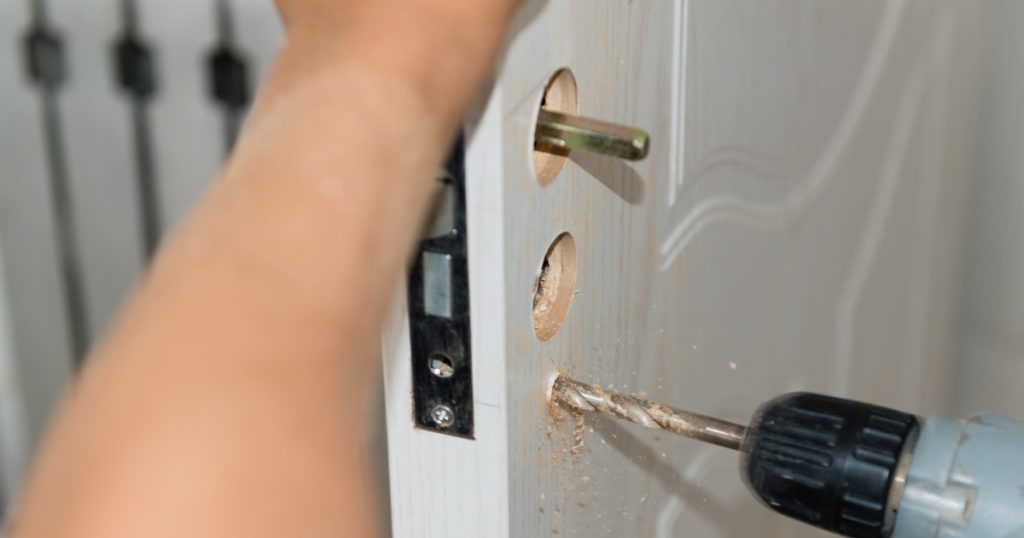Your home or business premises should be a sanctuary, a place where you feel safe and secure. One of the most critical aspects of ensuring this security is the effectiveness of the locks on your doors.
Lock changing services are a vital aspect of maintaining this security, and this comprehensive guide will provide you with all the information you need to understand and make informed decisions about lock changing services.
Why Should You Change Your Locks?
There are several reasons why you might consider changing your locks. Some of the most common include:
- Wear and Tear
Over time, locks can become worn, making them less effective at securing your property. If you notice that your lock is becoming increasingly difficult to operate, it might be time for a replacement.
- Lost or Stolen Keys
If you’ve lost your keys or suspect they’ve been stolen, it’s essential to change your locks immediately to prevent unauthorised access to your property.
- Moving to a New Property
When you move into a new property, it’s always a good idea to change the locks. You can never be sure who might have a copy of the old keys, and changing the locks gives you peace of mind knowing that only you and your loved ones have access.
- Security Upgrades
As technology advances, so do the security features available in locks. If your current locks are outdated or don’t meet current security standards, upgrading to a more secure option can help protect your property and belongings.
- Break-ins or Attempted Break-ins
If your property has been the target of a break-in or attempted break-in, it’s essential to change your locks to ensure that the intruder cannot gain access again.
Types of Locks and Their Features
There is a wide range of lock types available on the market, each with its unique features and benefits. Some of the most common types include:
- Deadbolts
Deadbolts are one of the most popular and secure types of locks for residential properties. They offer a high level of security and are available in single-cylinder and double-cylinder varieties.
- Mortice Locks
Mortice locks are typically used on wooden doors and provide a secure and robust locking solution. They are available in various security levels and can be used in combination with other lock types for added security.
- Smart Locks
Smart locks offer keyless entry and enhanced security features through smartphone apps or other connected devices. They can be programmed with multiple user codes, allowing you to grant access to specific individuals without the need for physical keys.
- Padlocks
Padlocks are portable and versatile locking devices that can be used in various applications, such as securing gates, storage units, and lockers. They are available in a range of sizes and security levels, with some offering combination codes or key-based locking mechanisms.
- Cylinder Locks
Cylinder locks, also known as Euro cylinder locks, are commonly used in uPVC and composite doors. They are easy to replace and offer various security features, such as anti-snap, anti-drill, and anti-bump protection.
- Electronic Keypad Locks
Electronic keypad locks use a numeric keypad for entry, eliminating the need for physical keys. They can be programmed with multiple user codes, making them ideal for businesses or shared accommodation.
How to Choose the Right Lock Changing Service
When selecting a lock changing service, there are several factors to consider:
- Reputation and Reviews
Research local lock changing services and read reviews from previous customers. This will give you an idea of the quality of work and customer service you can expect.
- Qualifications and Experience
Choose a locksmith who is qualified, trained, and experienced in dealing with various lock types and security systems. Look for membership in professional associations, such as the Master Locksmiths Association (MLA).
- Insurance and Guarantees
Ensure the lock changing service you choose is insured, and their work comes with a guarantee. This protects you in the event of any issues or damages that may occur during the lock changing process.
- Availability and Response Time
When you require a lock change, it’s crucial to choose a service that offers fast response times and can accommodate your schedule.
DIY vs Professional Lock Changing
While it may be tempting to attempt a lock change yourself, there are several benefits to hiring a professional local locksmith:
Expertise and Experience
Residential locksmiths have the necessary knowledge and experience to efficiently and effectively change locks, ensuring that your property is secure.
Proper Tools and Equipment
Locksmiths have access to specialised tools and equipment required for lock changes, which may not be readily available to the average homeowner.
Safety and Security
DIY lock changes can result in damage to your door or an improperly installed lock, compromising your property’s security. A professional locksmith will ensure that your lock is installed correctly and securely.
Costs Involved in Lock Changing
The cost of lock changing services will vary depending on several factors, including:
- The type of lock being installed
- The complexity of the installation
- Whether any additional security features are required
- The location of the property
- The locksmith’s experience and qualifications
It’s essential to obtain quotes from multiple locksmiths to ensure you are receiving a competitive price for the service.
Steps Involved in the Lock Changing Process
The lock changing process will vary depending on the type of lock being installed. However, some general steps include:
- Removal of the existing lock
- Preparation of the door or lock mechanism for the new lock
- Installation of the new lock
- Testing of the new lock to ensure it operates correctly and securely
- Clean-up and disposal of the old lock
Maintaining Your New Locks
To ensure the longevity and effectiveness of your new locks, it’s essential to perform regular maintenance:
- Lubricate the lock mechanism with a suitable lubricant, such as graphite or silicone-based lubricants.
- Clean the exterior of the lock regularly to remove dirt and debris that may hinder its operation.
- Inspect your locks periodically for signs of wear or damage, and address any issues promptly.
Conclusion
Lock changing services are crucial for maintaining the security and safety of your property. Understanding the various types of locks available, the reasons for changing locks, and the factors to consider when choosing a lock changing service will help you make informed decisions to protect your home or business.
By following this comprehensive guide, you’ll be equipped with all the knowledge needed to navigate the lock changing process, from selecting the right locksmith to maintaining your new locks. With the right lock changing service, you can enjoy peace of mind knowing that your property is secure and protected.

